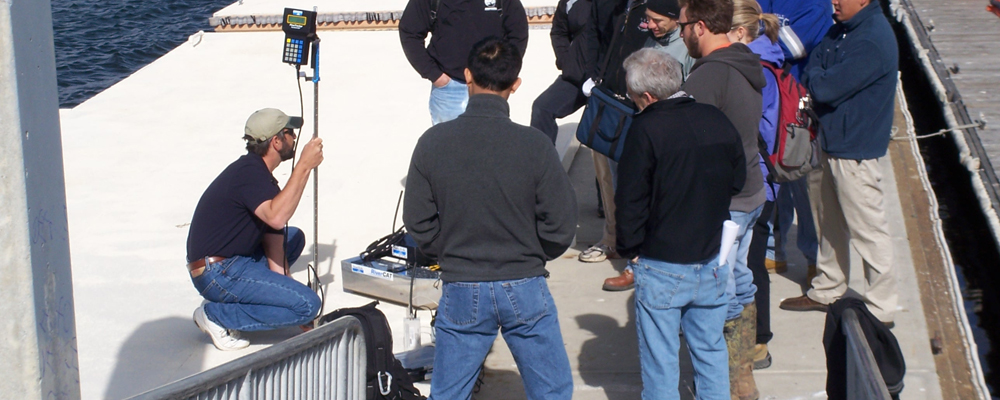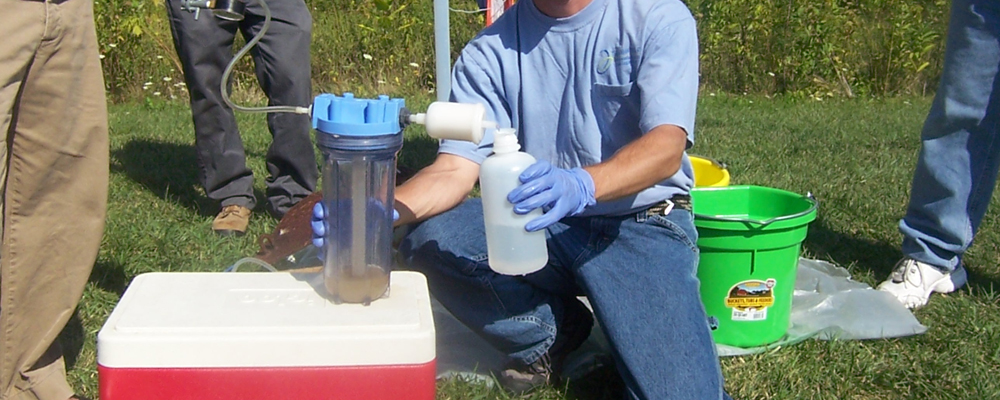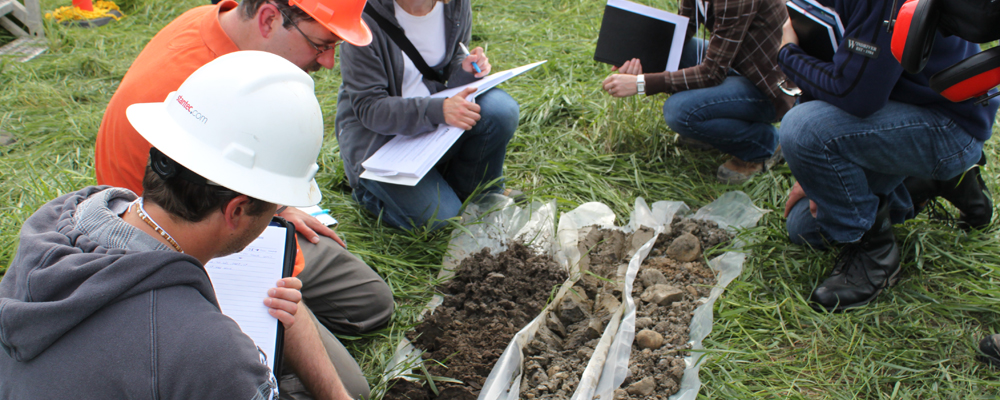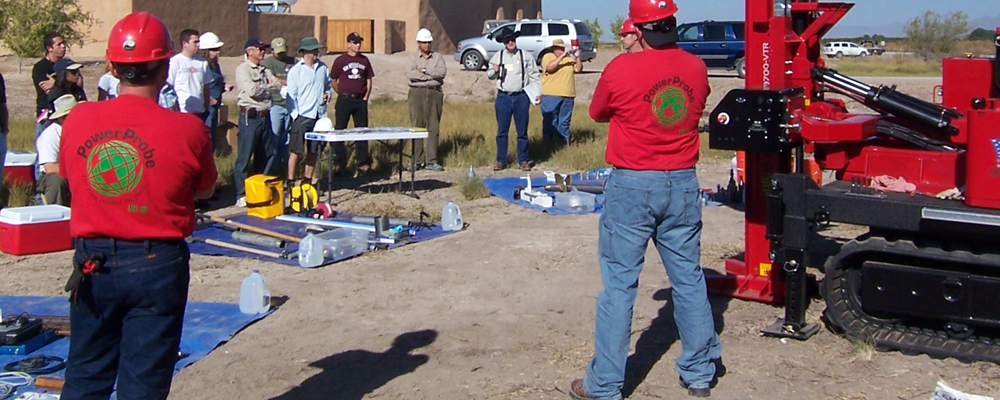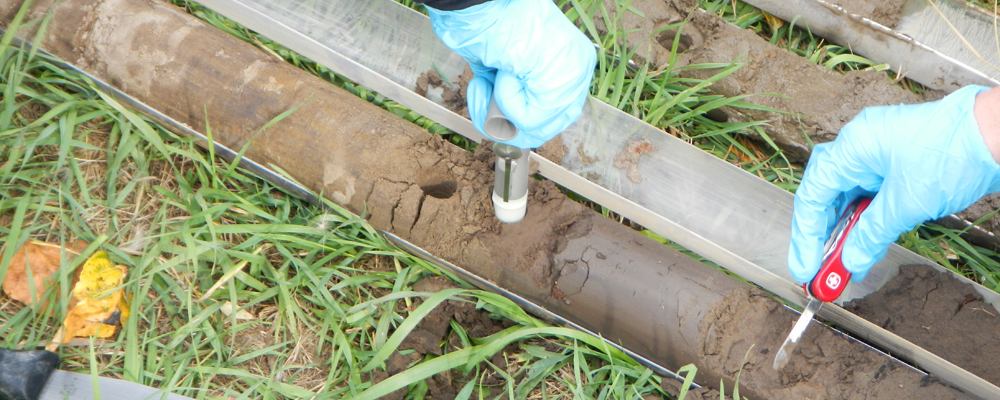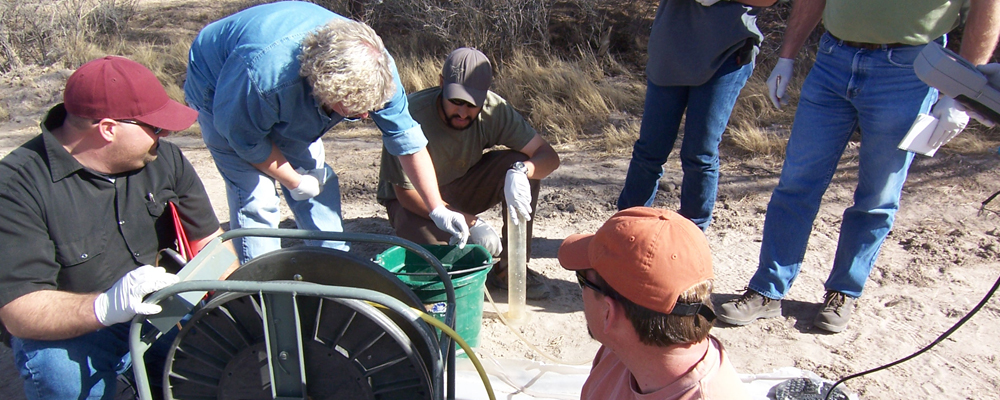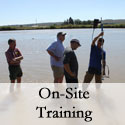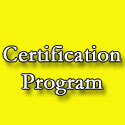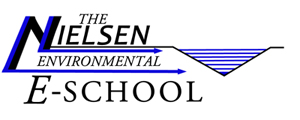Technical Services: Field Team Audits
Many clients elect to bring the staff of The Nielsen Environmental Field School into the field to review field practices being implemented by in-house field teams or contracted field personnel. The purposes and the end products of these audits are tailored to meet each client's specific needs. We have developed a Field Audit Questionnaire to help our clients design the type of audit they need to meet their objectives. Contact us today to receive an electronic version of this Questionnaire and we will go from there to put together a well-designed audit just for you.
Why Conduct a Field Team Audit?
The reasons for conducting audits vary with each specific client. The most common reasons for conducting an audit include:
For In-House Field Personnel, to:
- Determine if in-house field personnel are following Standard Operating Procedures (SOPs) correctly
- Determine if there are any deficiencies in how SOPs have been prepared and how to best correct field practices
- Determine if there are any misunderstandings by field personnel regarding expectations of SOPs
- Validate or dispute outside audit results (such as those of a regulatory agency)
- Assist in the development of new SOPs where new sampling equipment or techniques are being used, such as switching from conventional well purging to low-flow purging and sampling
- Conduct annual quality control checks on sampling teams and analytical labs
For Contracted Field Service Audits, to:
- Determine if contractors are actually implementing approved SOPs in the field, and generating valid data
- Identify any areas of deficiency in field procedures being implemented, and the means to correct problem areas
- Determine if there are any areas of confusion in the field that need to be addressed by project management
- Determine if companies are receiving all services being invoiced by contractors
- Validate or dispute outside audit results (such as those of a regulatory agency)
How Does an Audit Work?
The design of an audit is tied directly to the objectives defined by the client. Some clients simply want to find out if their contractors are following the SOPs outlined in their work plans at a single site. This type of audit is simple and straightforward, consisting mainly of filling out a detailed checklist. Other clients want to evaluate the field equipment used by their field staff or determine if the field team is complying with specific requirements of overseeing regulatory agencies in several different jurisdictions. This type of audit is typically more complicated, requiring more time and a more substantial report.
While in the field, the auditors will make detailed observations about actual field activities being conducted during the audit. Depending upon the objectives of the audit, these observations may be evaluated against required SOPs, against best available standard methods and practices; or against corporate field procedure guidance. The amount of interaction and exchange of technical information between the auditors and field team is, again, highly dependent upon the objectives of the audit. At no time is an audit designed to be adversarial.
Who Conducts the Field Audits?
All audits are conducted by the principals of The Nielsen Environmental Field School, so auditors each have more than 60 years of practical experience in all aspects of environmental field work. The auditors have also been closely involved in the preparation and review of ASTM Standards related to field practices, many company SOPs and many state and federal regulatory agency guidance documents, so they are intimately familiar with a variety of field protocols.
When Should an Audit Be Done?
The timing of an audit is best defined by discussions between the auditors and the client. In some cases, audits may be conducted as an unannounced visit to permit observation of actual field practices. In other cases, the field team is well aware of the audit and works with the auditors to structure field activities that will cover all key practices and procedures defined in the SOPs. In still other instances, where the audit is conducted as an independent third party review of field procedures, the field team may be given a window of dates for the audit to be conducted.
Where Should an Audit Be Done?
Some clients have multiple sites, and selecting which sites at which field audits should be conducted is dependent on which will meet the objectives of the audit. For audits in which field equipment is being evaluated, we select a combination of sites which will allow us to observe all relevant equipment in use. For audits in which compliance with requirements of different regulatory agencies is being evaluated, we select a combination of sites which include all of the different regulatory jurisdictions.
What is the Final Product of an Audit?
The final product of an audit can vary from a simple check list report to a very detailed technical evaluation of the sampling team being audited. The client requesting the audit makes the decision on report format. In addition to written reports, photographic documentation of field activities can also be included in the report pending security clearance with the field site.
How Long do Audits Take?
Individual audits typically take at least 10 hours in the field, but can extend over several days if necessary. On rare occasions, an audit can be completed in a few hours in the field.
How Much Does and Audit Cost?
Because of the highly variable nature of the objectives of audits, there is no "cook book" approach to developing a budget for an audit. If you are interested in having us prepare a no-obligation quote for conducting an audit, go to our Contact Us page and click on the bullet for a field audit quote. We will e-mail you a very brief questionnaire which will provide us with some critical details needed to prepare an accurate cost estimate for your audit.

